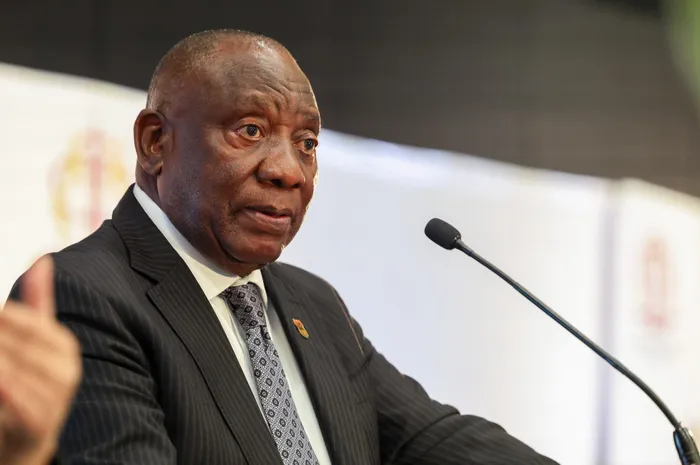
President Cyril Ramaphosa says BEE is here to stay.
Image: Jairus Mmutle/GCIS
THE Government of National Unity (GNU) is once again headed for choppy waters after the ANC has rejected the DA proposal to eliminate South Africa's Black Economic Empowerment (BEE) policy.
The DA’s Economic Inclusion for All Bill, introduced to replace the existing BEE policy, aims to remove race as a determining factor and replace it with a needs-based approach.
The party argues that BEE, since its introduction in 2003 as a redress policy for apartheid-era economic inequalities, has been ineffective and has primarily benefited a connected elite, leaving the majority of South Africans impoverished and unemployed.
President Cyril Ramaphosa, speaking in his capacity as ANC president during a visit to Soshanguve in Pretoria on Monday night, made it clear that any amendments would need to align with the policy's constitutional underpinnings.
“Currently, we have a BEE policy that is rooted and underpinned by our Constitution, so if anyone wants an amendment to the BEE Act, they must table their proposals, and they must be taken for discussion in Parliament. At the moment, BEE policies, legislation, and regulation apply, without any dilution whatsoever.”
ANC spokesperson Mahlengi Bhengu said the ANC's stance was that the organisation remained open to any discussions but were not willing to scrap the policy.
“The DA foresees a South Africa that is without transformation laws starting with B-BBEE (Broad-Based-Black Economic Empowerment)... This is an idea that has to be challenged by any democracy-loving people and patriots. Many of whom are beneficiaries of this particular policy,” Bhengu said.
She highlighted the rise of black individuals in corporate and public sectors, including women in CEO positions, as proud beneficiaries of BEE.
“We are a country that is founded in the culture of dialogue, and if the DA was sincere about their intentions, they would be part of the national dialogue process, which they have boycotted and abandoned. But the ANC is willing to engage.
“However, what I want to stress is that there won't be a day in South Africa where BEE is scrapped as legislation. Amendments are acceptable as long as they do not deviate from the substance of that legislation,” she said.
Cosatu described the DA’s proposal as “naïve”, questioning who would benefit from it.
“Cosatu remains a steadfast supporter of BEE's progressive objectives, asserting its fundamental necessity in a country still grappling with the legacies of systematic discrimination.
“As long as South Africa remains scarred by the painful legacies of exclusion, then transformation legislation such as B-BBEE and Employment Equity will continue to be critical tools to overcoming our still entrenched levels of poverty and inequality,” said the federation’s spokesperson Matthew Parks.
The trade union federation dismissed claims that BEE has primarily enriched a few politically connected individuals, calling them “long debunked fairy tale claims”.
Mat Cuthbert, DA head of Policy, argued that the ANC’s policy is “only for cadres”, while his party emphasises needs-based empowerment and promotes social impact and value-for-money.
“Despite growing evidence of BEE’s failures, the ANC continues to defend it due to its vested interests. One only needs to look at their President and much of the senior leadership to realise this,” Cuthbert said.
GOOD Party secretary-general Brett Herron, said: "What the DA Anti-BEE Bill seeks to do is to use the ANC’s integrity lapses as a tool to retain ownership of the economy in the hands of apartheid beneficiaries, while being charitable to poor people. It denies the undeniable links between poverty and race, which appears to be part of a broader strategy of apartheid denial."
While acknowledging that the DA's proposals were “peripheral”, Political Analyst Sandile Swana said: “BEE cannot change the GDP growth rate... There are other macro policies that developed the Chinese economy and other economies that have nothing to do with BEE.”
Cape Times
Related Topics: